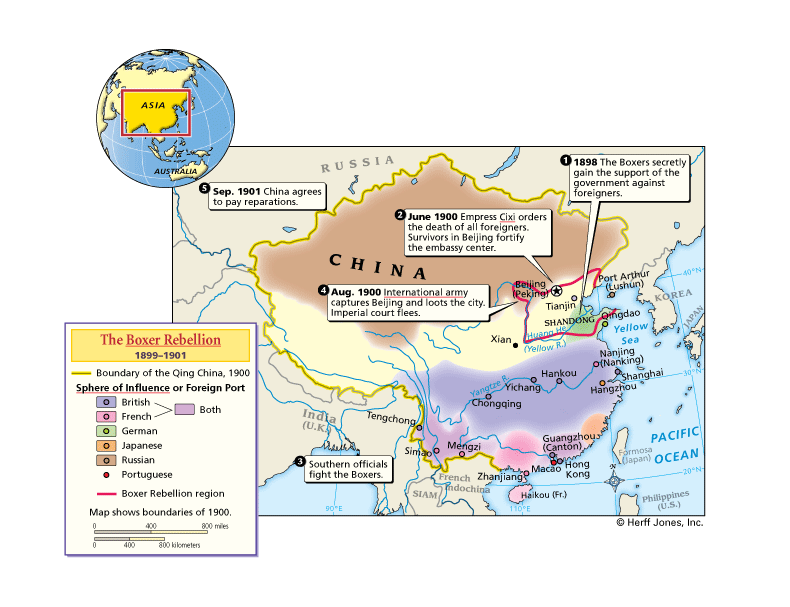
The Yihequan, the Society of Righteous and Harmonious Fists, was a secret society from Shandong dedicated to cleansing China of foreign influence. Originally they opposed both the Manchu dynasty and Westerners, but in 1898 they allied with Manchu government. In the next two years they killed several hundred people before a foreign army destroyed them. Because of their exercise rituals, they were nicknamed "Boxers."
The imperial powers established spheres of influence, rather than outright colonies in China. In each region, one country would have final say on foreign investment, imports, missionary activity, and key industries—especially transportation. The system was supposed to limit rivalry among the imperial powers. The United States opposed the system, favoring an "Open Door Policy" that would allow all countries equal access to all parts of China.
Dowager Emperess Cixi was the unofficial ruler of China from 1861 to 1908, ruling through her son and adopted son. She was a strong traditionalist. She opposed any westernizing reform of China. In 1898 she overthrew and imprisoned her adopted son, the Guangxu Emperor, just as he began a series of westernizing reforms. At roughly the same time she reached an agreement with the Boxers.
Eight countries organized a joint attack on Beijing to rescue the people trapped in the foreign embassy center, called the Legation. After defeating the Boxers, they shared the reparations and some increased their spheres of influence. The eight countries were Japan, Russia, the United Kingdom, France, Germany, the United States, Italy, and Austria-Hungary.